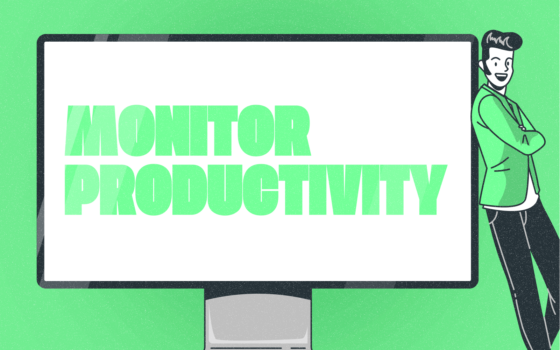Human Resources Manager
In an era where talent is often the differentiating factor between successful and struggling organizations, the importance of effective HR management cannot be overstated. As we look to the future, HR Managers will continue to be at the forefront of organizational change, championing innovation, diversity, and employee well-being. Those who can navigate the complexities of this role with skill and empathy will not only thrive in their careers but also make a lasting impact on the lives of employees and the success of their organizations.
The role of a Human Resources Manager is both challenging and rewarding, requiring a diverse skill set and a deep understanding of organizational dynamics. As businesses continue to evolve, HR Managers must stay agile, embracing new technologies and methodologies while never losing sight of the human element at the core of their work. By balancing strategic thinking with day-to-day operational excellence, HR Managers play a crucial role in driving organizational success and fostering a positive, productive work environment.
Conclusion
- Faster decision-making and implementation
- Increased collaboration across departments
- Iterative improvement of HR processes
- Rapid adaptation to changing business needs
Adopting agile methodologies in HR management allows for:
Agile HR Practices
- Continuous feedback and recognition programs
- Mental health and well-being initiatives
- Flexible work arrangements
- Personalized career development paths
HR Managers are increasingly prioritizing the holistic employee experience, considering:
Focus on Employee Experience
- AI-driven performance management
- Automated onboarding and training processes
- Chatbots for employee self-service
- Predictive analytics in talent acquisition
AI and automation are transforming HR processes, offering opportunities for:
Artificial Intelligence and Automation
As the business landscape continues to evolve, so too does the role of HR management. Some emerging trends include:
The Future of HR Management
- Data analysis and interpretation abilities
- Creative problem-solving skills
- Foresight to anticipate future challenges
- Ability to align HR initiatives with business goals
Successful HR Managers think beyond day-to-day operations, considering the long-term impact of their decisions. This requires:
Strategic Thinking
- Adaptability in the face of change
- Ability to build and maintain relationships
- Self-awareness and self-regulation
- Empathy and compassion
HR Managers must be adept at understanding and managing emotions, both their own and others'. This involves:
Emotional Intelligence
- Conflict resolution and negotiation skills
- Ability to tailor messages to different audiences
- Clear and concise written communication
- Active listening skills
Effective communication is paramount in HR management. This includes:
Communication
To excel in this multifaceted role, HR Managers must possess a unique blend of skills and qualities:
Skills and Qualities of Successful HR Managers
- Managing performance in a virtual environment
- Addressing work-life balance concerns
- Ensuring productivity and engagement
- Maintaining team cohesion and communication
The rise of remote work has introduced new challenges for HR Managers, including:
Remote Work Management
- Measuring and improving diversity initiatives
- Creating an inclusive culture that values differences
- Promoting diversity at all levels of the organization
- Overcoming unconscious bias in hiring
Fostering a diverse and inclusive workplace is both a moral imperative and a business advantage. HR Managers face challenges in:
Diversity and Inclusion
- Implementing effective retention strategies
- Creating engaging work environments
- Offering competitive compensation packages
- Developing compelling employer branding
In a competitive job market, attracting and retaining top talent can be difficult. HR Managers must be creative in their approach to:
Talent Shortage
While rewarding, the role of an HR Manager comes with its share of challenges. Some common hurdles include:
Challenges in HR Management
By prioritizing health and safety, HR Managers protect both employees and the organization.
- Ensuring compliance with OSHA regulations
- Addressing workplace hazards promptly
- Conducting regular safety audits
- Implementing safety training programs
Maintaining a safe work environment is not just a legal requirement but also a moral imperative. HR Managers are responsible for:
Health and Safety
HR Managers must ensure that all organizational policies and practices align with these regulations.
- Americans with Disabilities Act (ADA)
- Family and Medical Leave Act (FMLA)
- Equal Employment Opportunity (EEO) regulations
- Fair Labor Standards Act (FLSA)
Ensuring compliance with local, state, and federal labor laws is paramount. This includes:
Labor Laws and Regulations
Navigating the complex landscape of employment law is a critical aspect of HR management. HR Managers must stay abreast of:
Compliance and Legal Considerations
By harnessing the power of data, HR Managers can make more informed decisions that drive organizational success.
- Optimize recruitment and retention strategies
- Predict future workforce needs
- Measure the effectiveness of HR initiatives
- Identify trends in employee turnover
HR analytics has emerged as a powerful tool for informed decision-making. HR Managers use data to:
Data-Driven Decision Making
By effectively utilizing HRIS, HR Managers can streamline operations and improve data accuracy.
- Integration with other business systems
- Self-service portals for employees
- Automated HR processes and workflows
- Centralized employee data management
HRIS platforms have become indispensable tools for modern HR management. They offer:
Human Resource Information Systems (HRIS)
The digital age has transformed HR management, introducing new tools and methodologies. HR Managers must be adept at leveraging technology to enhance their effectiveness:
HR Technology and Analytics
By effectively managing change, HR Managers help maintain stability and productivity during periods of transition.
- Ensuring smooth implementation of new processes or systems
- Addressing employee concerns and resistance
- Providing support and resources during transitions
- Communicating organizational changes effectively
In today's fast-paced business environment, change is constant. HR Managers play a crucial role in:
Change Management
A strong organizational culture not only improves employee satisfaction but also contributes to overall business success.
- Addressing cultural issues that may arise
- Measuring and monitoring employee engagement
- Implementing initiatives to reinforce desired behaviors
- Defining and communicating company values
Shaping and maintaining a positive organizational culture is a critical responsibility of HR Managers. This involves:
Organizational Culture and Values
By taking a proactive approach to workforce planning, HR Managers ensure that the organization is well-equipped to meet future challenges.
- Implementing strategies to address potential skill gaps
- Developing succession plans for key positions
- Forecasting future skill requirements
- Analyzing current workforce demographics
HR Managers must anticipate future talent needs and develop strategies to meet them. This includes:
Workforce Planning
Beyond day-to-day operations, HR Managers play a crucial role in shaping the overall direction of the organization. This strategic aspect of HR management involves:
Strategic HR Management
A well-designed compensation strategy not only attracts talent but also motivates employees to perform at their best.
- Ensuring compliance with labor laws and regulations
- Managing employee benefits programs
- Developing fair and equitable pay structures
- Conducting market research on salary trends
Attracting and retaining top talent requires competitive compensation packages. HR Managers are tasked with:
Compensation and Benefits
By investing in employee growth, HR Managers help create a skilled and adaptable workforce capable of meeting future challenges.
- Measuring the effectiveness of learning initiatives
- Facilitating professional development opportunities
- Designing and implementing training programs
- Identifying skill gaps within the organization
In today's rapidly changing business landscape, continuous learning is essential. HR Managers play a vital role in:
Training and Development
By prioritizing employee relations, HR Managers contribute to a harmonious workplace that drives organizational success.
- Addressing grievances and maintaining open lines of communication
- Conducting regular performance reviews
- Implementing employee engagement initiatives
- Mediating conflicts between employees or departments
Fostering a positive work environment is crucial for employee satisfaction and productivity. HR Managers are responsible for:
Employee Relations and Engagement
A skilled HR Manager understands the importance of not just filling positions, but finding candidates who align with the company's values and culture.
- Negotiating job offers and onboarding new hires
- Conducting interviews and assessmens
- Implementing effective recruitment strategies
- Developing comprehensive job descriptions
One of the primary functions of an HR Manager is to attract and secure top talent for the organization. This involves:
Talent Acquisition and Recruitment
At its core, the role of a Human Resources Manager is to oversee the human capital of an organization. This encompasses a wide array of responsibilities, from strategic planning to day-to-day operations. Let's break down the key aspects of this crucial position:
The Role of a Human Resources Manager
In the ever-evolving landscape of business, Human Resources (HR) management plays a pivotal role in shaping organizational success. A Human Resources Manager serves as the linchpin between employees and the company, orchestrating a delicate balance of talent acquisition, employee development, and organizational culture. This comprehensive guide delves into the multifaceted world of HR management, exploring its key components, challenges, and the skills required to excel in this dynamic field.


